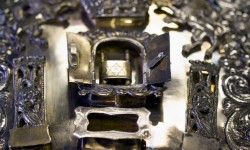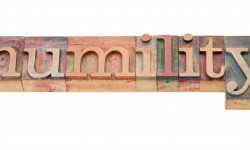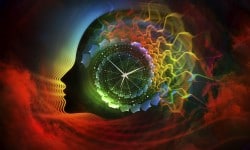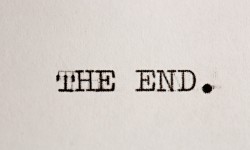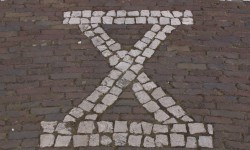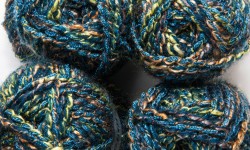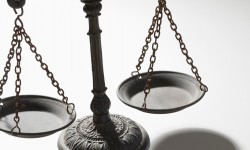
Pirkei Avos
Reading these moral chapters of truth helps us write our own moral chapters in life.
Starting after Passover, there is a custom to read a chapter of the “Ethics Of Our Fathers” every Shabbat up till Rosh Hashanah. Do you want to get rich fast? Are you looking for the key to wisdom? Then you have come to the right place. From the Golden Rule to the secret of friendship; from the ideas of government to the ideal time to get married; from whether one can one have Torah without Ethics to whether one can one have Ethics without Torah, the Ethics of our Fathers is a book that will leave you smiling, will leave you wiser, and, if you really heed it’s advice, it will leave you richer.
Would You Like to Judge Yourself?
The only power on earth or heaven that can judge man is man himself.
Read MoreAre You Good on the Inside?
The inner environment of a person’s character and personality be in line with his actions. How to align your values with your inner self.
Read MoreThe Silent Soul: The Spiritual Meaning of Speech
The world is G-d speaking. Learn all about the spiritual meaning of speech. How can we, as humans, best use speech for spiritual purposes?
Read MoreAn Unclouded Harvest: Lessons of Achitofel
Achitofel was one of the greatest sages of his generation. Yet all his life he followed the route of giving precedence to his reason over his piety—a path which brought him much grief. Therein lies the deeper significance of the three pieces of advice he offers to his children before his passing: he is warning them not to repeat his error of placing wisdom before piety, as this pertains to the three “crowns” of human aspiration.
Read MoreConcentrated Light
As the example of the concentrated light of a laser beam demonstrates, it is precisely the “limitations” imposed on a force that amplify its potentials and enable its optimal realization.
Read MoreThe Workaholic
The Driven Workaholic says: “The day is short, the work is much, the workers are lazy, the reward is great, and the Master is pressing” (Ethics of the Fathers 2:15).
Read MoreJudging with Double Standards
We must measure our own worth in terms of our real and concrete achievements, and view others in terms of their potential.
Read MoreThe Sixth Chapter
The story of the sixth chapter of the Ethics of Our Fathers expresses a truth that is fundamental to the Torah, and to the significance of Shavuot in particular.
Read MoreWide Angle Lens
Ethics of Our Fathers teaches: If we view the whole person rather than focus on the parts that are wanting, we will surely find much that is meritorious.
Read MoreExistence as Birth
One who sees the world born anew every fraction of time by an act of Divine creation, understands, in the most vivid and absolute manner possible, that “reality” can never be inconsistent with the Divine will.
Read MoreThe Inner Ear
Asked Rabbi Israel Baal Shem Tov: Have you ever met someone who told you that he hears this echo? To what purpose, then, is this proclamation if no one hears it?
Read MorePerpetual Rebirth
Reality is nothing but the fact of G-d’s will to create it, as it is, in the present micro-moment.
Read MorePersonal Politics
One must avail oneself of this government. But one must also deeply mistrust it, being aware of its self-bias.
Read MoreRabbi Eliezer & Rabbi Elazar
Trick question: Who was greater? Rabbi Eliezer or Rabbi Elezar?
Read MoreThe Mirror
If he senses his fellow’s degradation, he must conclude that Divine providence has provided him with a mirror with which to discern his own shortcomings.
Read MoreThe Upside-Down Tree
A person’s deeds are embedded in the soil of supra-rational faith and commitment, and nourish his understanding of himself, his world and his G-d.
Read MoreDo You Want to be Rich?
If you wish to be truly rich, our mishnah is saying, expend only the toil of your “hands,” the more external elements of your talents and faculties, in your material involvements, reserving the “toil of your head” for the more lofty things in life.
Read MoreFamous Last Words
The chassid Rabbi Moshe Rubin would tell the story of a man who had been told that he would receive all the land he could manage to cover on foot in one day.
Read MoreThe Impoverished Scholar
A person who fulfills the Torah in poverty—who recognizes the poverty of his mind before the infinite perfection of the divine truth—will ultimately fulfill it in wealth.
Read MoreWhat’s in a Name?
In the Holy Tongue, a word precedes its subject, creates it, and constitutes its very being.
Read MoreThe Business of Spirituality
A life devoted to the study of Torah and implementation of its ideals much resembles a businessman’s occupation with his enterprise.
Read MoreOn the Essence of the Ethics
When the “correct path” of Torah is not only “harmonious for the one who does it” but also “harmonious for mankind,” G-d and man’s “joint project” of creation is complete.
Read MoreChapter One Text: Ethics of Our Fathers
An English translation of Chapter One of Ethics of Our Fathers, also known as Pirke Avot.
Read MoreChapter Two Text: Ethics of Our Fathers
An English translation of Chapter Two of Ethics of Our Fathers, also known as Pirke Avot.
Read MoreChapter Three Text: Ethics of Our Fathers
An English translation of Chapter Three of Ethics of Our Fathers, also known as Pirke Avot.
Read MoreChapter Four Text: Ethics of Our Fathers
An English translation of Chapter Four of Ethics of Our Fathers, also known as Pirke Avot.
Read MoreChapter Five Text: Ethics of Our Fathers
An English translation of Chapter Five of Ethics of Our Fathers, also known as Pirke Avot.
Read MoreChapter Six Text: Ethics of Our Fathers
An English translation of Chapter Six of Ethics of Our Fathers, also known as Pirke Avot.
Read MoreDestroying the World
Drawing on the wisdom of the Oral Torah and the Zohar, the ten utterances which created the world and the perfection of the number ten are expounded.
Read MoreMystical Meals
One can fulfill G-d’s will while eating by allowing his body, his soul, and the food to be dominated by a transcendent perspective.
Read MoreFour and the Same
Included in the categories of one who is a contributor of charity & one who attends the study hall in 2 paras of Ethics of our Fathers is a chassid & rasha.
Read MoreA Lesson in Humility
There are two approaches to develop a true feeling of humility toward someone whose character or behavior is obviously inferior to one’s own.
Read MoreSubjective Judge
Insight into judgement: The only power on earth or heaven that can judge man is man himself.
Read MoreDefying Space & Time
Unpacking the miracle of space in the Ark in the Holy Temple and the significance of time in the banquet that is our world.
Read MoreIf I Am Only for Myself, What Am I?
Rabbi Simon Jacobson discusses the famous quote, “If I am not for myself, who will be for me? If I am only for myself, what am I?” In this short video, you can discover the fundamental ideas behind true empathy while looking after your own needs.
Read More







